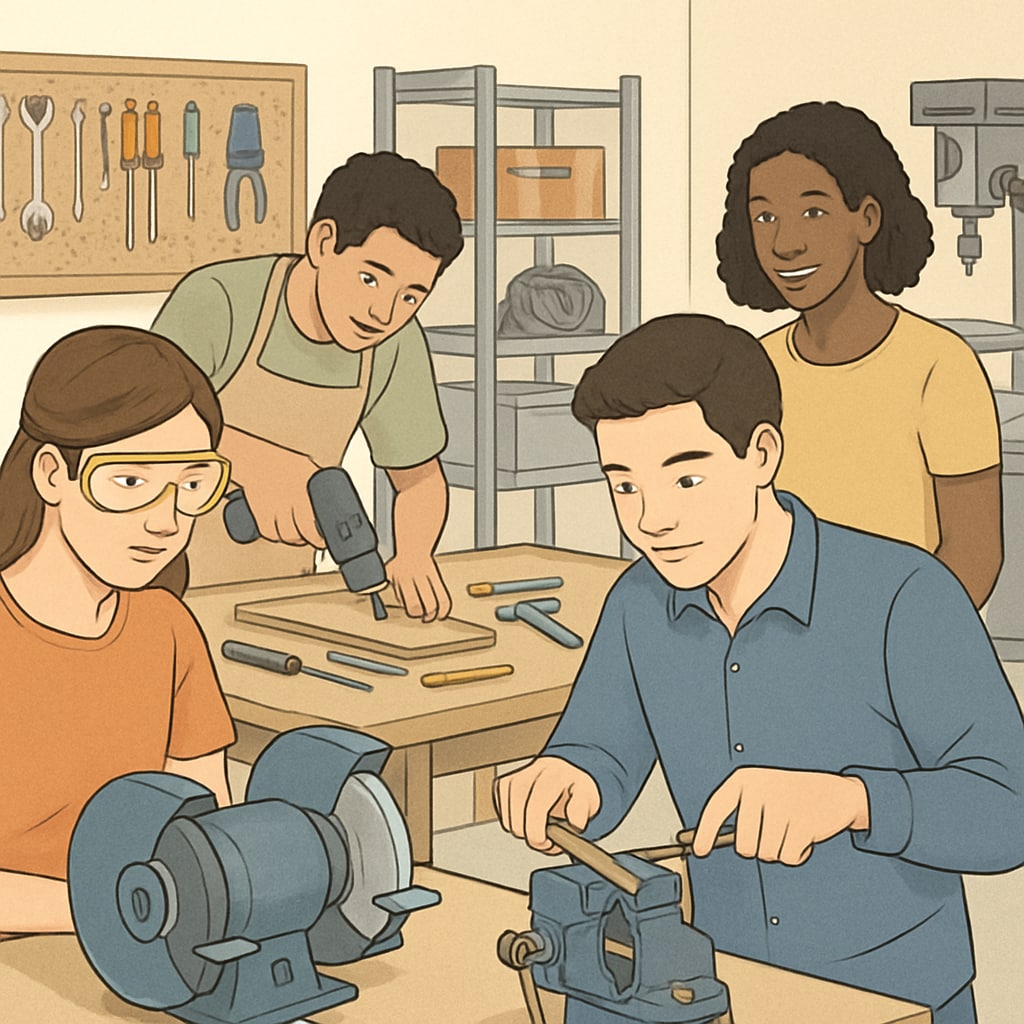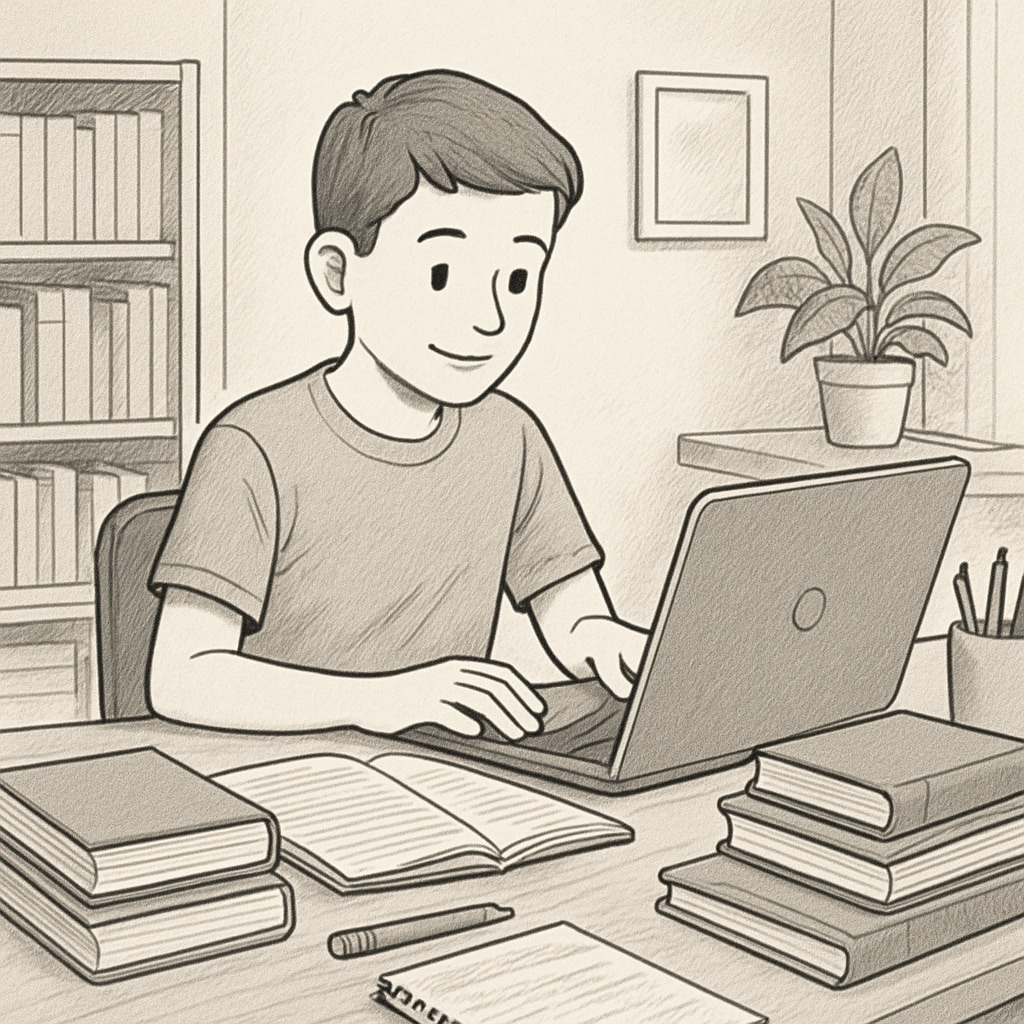In the UK, academic disruption can occur for various reasons, such as family challenges, health issues, or personal circumstances. For those affected, re-entering the education system may seem daunting. However, there are multiple pathways available to support young people in continuing their education and achieving their goals. From vocational qualifications to remote learning and community programs, this article offers a comprehensive guide to help individuals navigate their options and regain their footing in the academic world.
Vocational Qualifications: A Practical Path to Success
For young people who have experienced academic disruption, vocational qualifications can be an excellent way to gain practical skills and prepare for the workforce. These qualifications focus on specific industries, such as healthcare, engineering, or business, and often combine classroom learning with hands-on experience.
In the UK, programs like NVQs (National Vocational Qualifications) and BTECs (Business and Technology Education Council certificates) are widely recognized by employers. They offer flexible entry requirements and can be pursued at various levels, depending on the individual’s prior experience and education.
- Accessible Entry Points: Many vocational programs are designed to accommodate learners with diverse educational backgrounds.
- Hands-On Training: These programs often include internships or apprenticeships, providing real-world experience.
- Career Readiness: Graduates gain industry-specific skills, making them job-ready upon completion.

Remote Learning: Flexibility for Modern Learners
Remote learning has become increasingly popular in recent years, offering flexibility for individuals balancing work, family, or other commitments. For those whose education has been disrupted, online courses provide an opportunity to study at their own pace and in their own time.
Organizations such as the Open University and FutureLearn offer a wide range of courses, from short-term certificates to full degree programs. These platforms are ideal for learners who prefer a self-directed approach or need to fit their studies around other responsibilities.
Key Benefits of Remote Learning:
- Flexibility to study anywhere and at any time.
- Access to high-quality resources and expert instruction.
- Opportunities to connect with a global community of learners.

Community Support Programs: Local Resources for Growth
Community support programs play a crucial role in helping young people re-enter education. Many local organizations and charities in the UK offer workshops, mentoring, and financial assistance to those who have faced academic challenges.
For example, the Prince’s Trust supports young people aged 11-30 with opportunities to develop skills, confidence, and qualifications. Similarly, local councils and educational charities often run initiatives aimed at re-engaging students who have dropped out.
How Community Programs Help:
- Tailored Support: Programs often provide one-on-one mentoring and personalized guidance.
- Financial Assistance: Some initiatives offer scholarships or grants to cover educational expenses.
- Inclusive Environment: Community programs create safe spaces where individuals can rebuild their confidence.
Psychological Support: Overcoming Barriers to Learning
In addition to practical resources, psychological support is essential for young people overcoming academic disruption. Feelings of self-doubt, anxiety, or isolation can hinder progress, making it vital to address mental health concerns alongside educational goals.
Schools, charities, and online platforms often provide counseling services and peer support groups. These resources can help students develop resilience and a positive mindset as they navigate their return to education.
Support Strategies:
- Seek counseling or therapeutic services specifically for youth.
- Join peer support groups to connect with others facing similar challenges.
- Set achievable goals to build confidence and maintain motivation.
In conclusion, while academic disruption can be a significant challenge, the UK offers a variety of pathways for young people to continue their education. From vocational qualifications and remote learning to community programs and psychological support, there are resources available to help every individual succeed. By exploring these options, students can rebuild their educational journey and work towards a brighter future.
Readability guidance: This article uses short paragraphs and lists to summarize key points, ensuring clarity and accessibility for readers. Efforts were made to minimize passive voice and maintain an engaging tone throughout.


